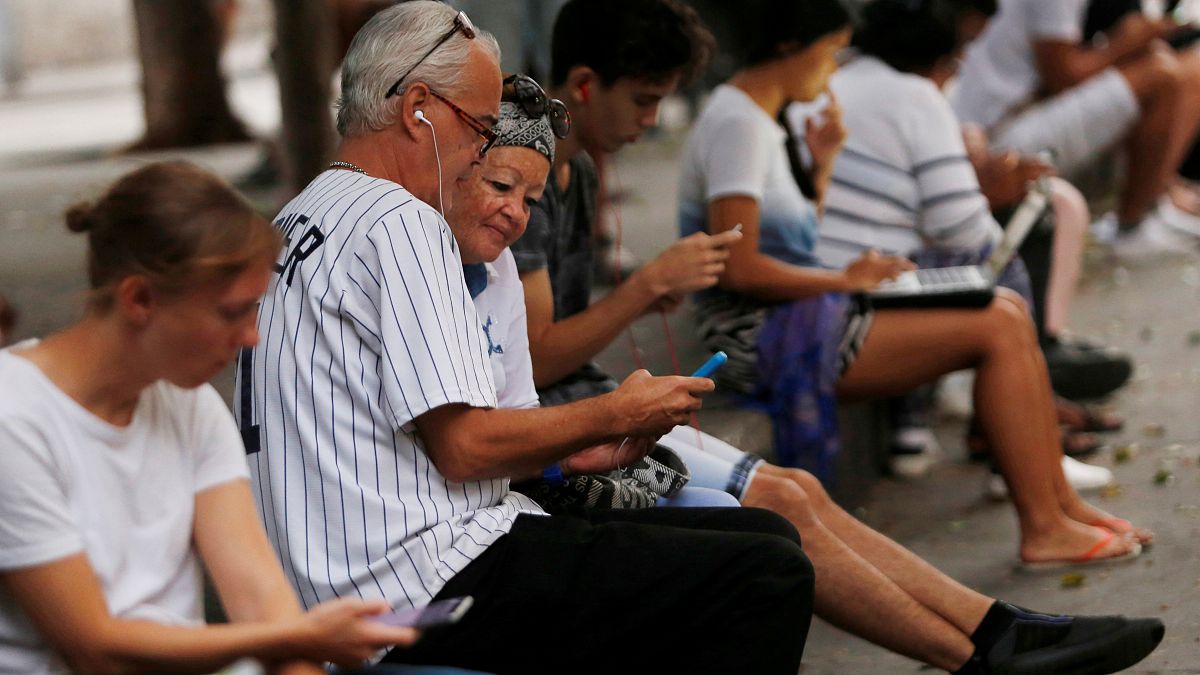All Cubans will now be able to access the internet from their home, but at what price? Euronews takes a look.
Cubans will now be able to access the internet from their homes as the government tries to defend its legitimacy both in the real and virtual worlds, a government official told the AFP.
"Cubans support and defend the revolution in every domain, both in the real and the virtual worlds," Ernesto Rodriguez Hernandez, vice minister of communications, said in an interview.
For Hernandez, the internet should be a tool to “position the truth of Cuba, not to manipulate things” in the ideological battle with the United States.
Cuba has only had access to the internet since December when mobile phones gained 3G connectivity. But only since July 22, have Cubans been able to import routers, register their equipment, and create private Wi-Fi networks connected to signals from state-owned operator ETECSA, meaning they will no longer have to go public sites to connect to the internet.
"The objective of the country is to provide wider and wider internet access to the entire populace," the vice minister said.
Cuba now counts with 1,400 Wi-FI hotspots, about 80,000 homes now have internet access and 2.5 million Cubans have 3G network.
Private internet comes with a price
However, private internet connection at home will come at a price — $1 (€0.89) an hour in a country where the average monthly salary is $50 (€45).
Hernadez said the internet should become cheaper with time as more and more people gain connectivity.
Since Wi-Fi’s arrival in 2013, “the cost of internet access has dropped by a factor of four,” said the vice-minister. He added that “it will continue to fall” as the island’s communications infrastructure improves.
Internet as a political tool
For Hernandez, internet is not apolitical as it can be used to "manipulate" the population.
"It does no good to provide internet service to those who do not know... how to distinguish between what is useful and what is harmful; not everything on the internet is good."
In order to protect the country from foreign threats, a series of measures published in the island's official newspaper called for "responsible use by citizens" and "the political defence and cybersecurity in the face of threats, attacks, and risks of all sorts."
This means that those who want their private home connections will have to be ready to "defend the revolution" online if need be under regulations enforced by the Communications Ministry with the help of the "revolutionary armed forces and the Interior Ministry".
To limit any chances of cyber threats or brainwashing, private connections to the internet will be closely monitored by authorities as it has been from the start.
According to the NGO Freedom House, only a small percentage of the Cuban population can have access to the internet and websites critical to the government remain blocked.
Hernadez claimed this was normal.
"We don't share those internet sites that can encourage discrimination or deal with subjects that go against morality, ethics and responsible behaviour," he said.
"It is a right of every state to protect its people and their society from practices of that sort -- and I believe that every country in the world does so."
